
The Majestic Karwendel Mountains
Nestled in the heart of the Austrian Alps, the Karwendel Mountains offer a breathtaking escape for nature lovers and adventure seekers alike. With its towering peaks and lush valleys, this mountain range is a haven for hikers, climbers, and photographers. The natural beauty of the Karwendel is complemented by its rich biodiversity, including a variety of flora and fauna that thrive in its alpine environment. Visitors can explore numerous well-marked trails that cater to all levels of difficulty, from leisurely walks to challenging climbs. The region is also home to several picturesque alpine huts where you can rest and enjoy local culinary delights. The serene atmosphere and stunning landscapes provide the perfect backdrop for relaxation and rejuvenation. In addition to its natural wonders, the Karwendel Mountains have a rich cultural heritage. Traditional villages with charming architecture dot the landscape, offering a glimpse into the local way of life. Seasonal festivals and events add to the cultural tapestry, making any visit to the Karwendel a memorable experience.
Local tips in Karwendel Mountains
- Check the weather forecast before heading out, as conditions can change quickly in the mountains.
- Wear sturdy hiking boots and bring a map or GPS device for safe navigation.
- Visit during the summer months for the best hiking conditions and blooming alpine flora.
- Explore the local alpine huts for a taste of traditional Austrian cuisine.
- Carry enough water and snacks, as some trails can be quite remote.
The Majestic Karwendel Mountains
Nestled in the heart of the Austrian Alps, the Karwendel Mountains offer a breathtaking escape for nature lovers and adventure seekers alike. With its towering peaks and lush valleys, this mountain range is a haven for hikers, climbers, and photographers. The natural beauty of the Karwendel is complemented by its rich biodiversity, including a variety of flora and fauna that thrive in its alpine environment. Visitors can explore numerous well-marked trails that cater to all levels of difficulty, from leisurely walks to challenging climbs. The region is also home to several picturesque alpine huts where you can rest and enjoy local culinary delights. The serene atmosphere and stunning landscapes provide the perfect backdrop for relaxation and rejuvenation. In addition to its natural wonders, the Karwendel Mountains have a rich cultural heritage. Traditional villages with charming architecture dot the landscape, offering a glimpse into the local way of life. Seasonal festivals and events add to the cultural tapestry, making any visit to the Karwendel a memorable experience.
When is the best time to go to Karwendel Mountains?
Iconic landmarks you can’t miss
Golden Roof
Explore the Golden Roof in Innsbruck, a stunning historical landmark adorned with gilded tiles, surrounded by charming streets and rich culture.
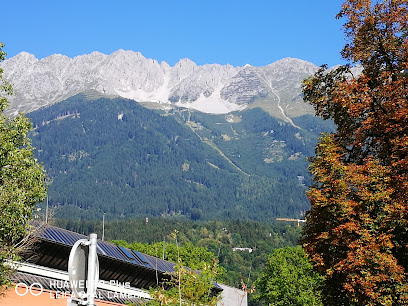
Karwendel-Bergbahn
Discover the breathtaking views and adventure at Karwendel-Bergbahn, a must-visit mountain cable car in the heart of Tyrolean Alps.
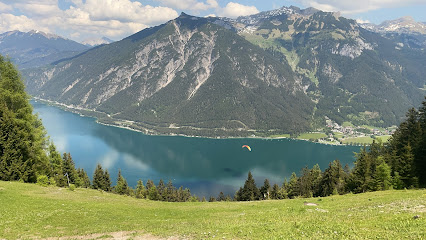
Tratzberg Castle
Discover the enchanting Tratzberg Castle, a medieval masterpiece in Tyrol, Austria, offering rich history and breathtaking views.
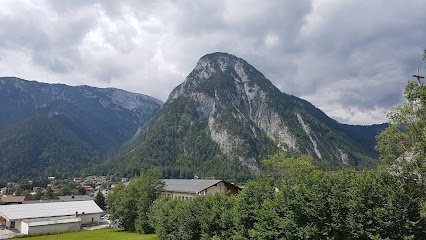
Wolfsklamm
Discover the stunning landscapes and historical charm of Wolfsklamm, a must-visit hiking area in Tyrol, Austria, perfect for outdoor enthusiasts.
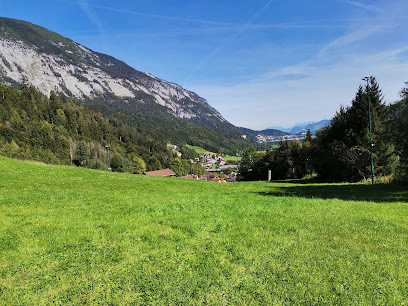
Leutasch-Klamm Wasserfallsteig
Explore the stunning Leutasch-Klamm Wasserfallsteig, where breathtaking waterfalls meet spectacular mountain scenery in a hiker's paradise.
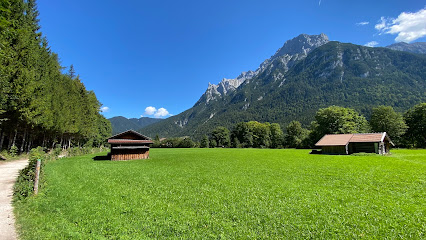
Naturpark Karwendel Verwaltung
Explore the breathtaking landscapes and diverse wildlife of Naturpark Karwendel, a stunning national reserve in the heart of the Austrian Alps.
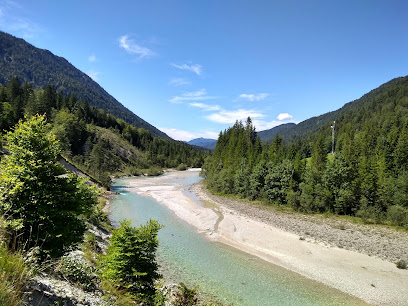
Karwendel
Explore the breathtaking Karwendel hiking area, a paradise for outdoor enthusiasts with stunning views and diverse trails in the Bavarian Alps.
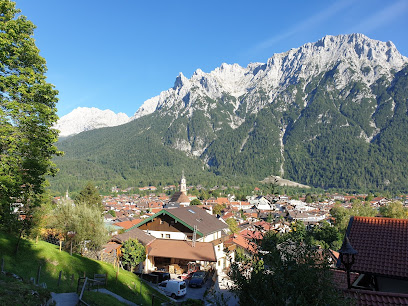
Dalfazer Wasserfall
Experience the breathtaking beauty of Dalfazer Wasserfall, a stunning waterfall in the Karwendel region, perfect for hiking and nature lovers.
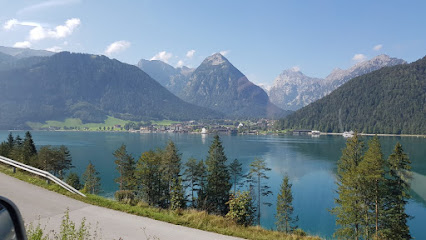
Burg Hasegg / Münze Hall in Tirol
Explore the fascinating history of coin minting and local culture at Burg Hasegg, a must-visit museum in Hall in Tirol, Austria.
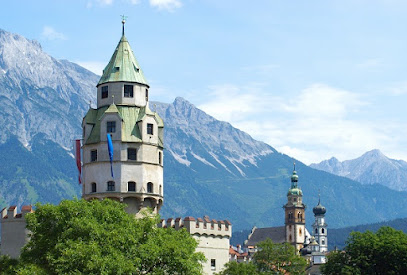
Walderalm
Discover the enchanting Walderalm, a perfect blend of hiking adventures and delightful dining experiences in the heart of Gnadenwald, Austria.
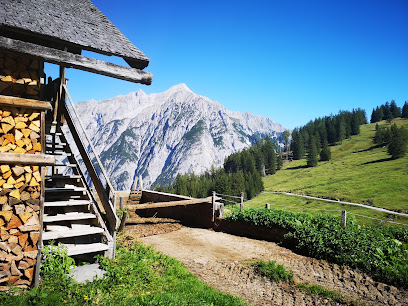
Großer Ahornboden
Discover the breathtaking beauty of Großer Ahornboden, a stunning hiking area in the heart of Austria's Karwendel mountains, renowned for its majestic scenery and iconic maple trees.
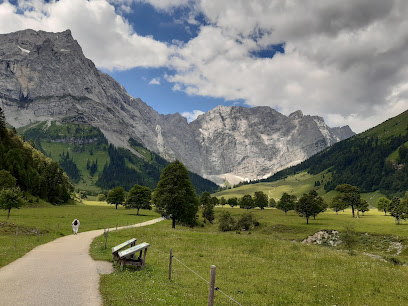
Binsalm
Discover the breathtaking Binsalm mountain cabin, where adventure meets relaxation in the heart of the Tyrolean Alps.
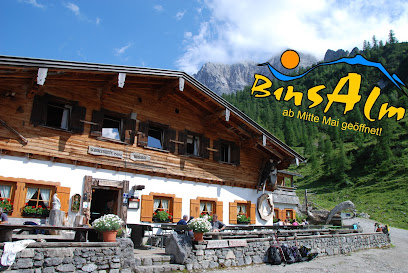
Isar- Natur-Erlebnisweg
Explore the Isar-Natur-Erlebnisweg, a breathtaking hiking area in Krün, Germany, ideal for nature lovers and outdoor enthusiasts seeking tranquility.
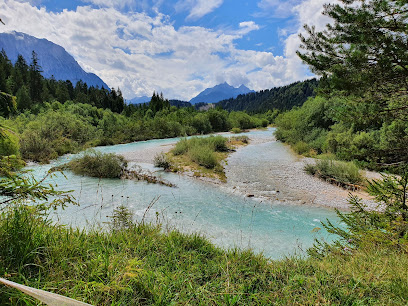
Karwendelhaus in Karwendel
Experience the serene beauty of Karwendelhaus, a charming mountain cabin in the breathtaking Karwendel range, perfect for adventure and relaxation.
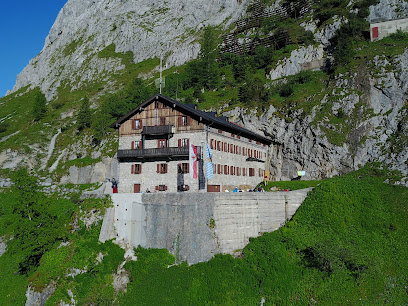
Brunnsteinhütte
Discover the breathtaking beauty of Brunnsteinhütte, a charming mountain hut in Mittenwald, offering stunning views, delicious cuisine, and cozy lodging.
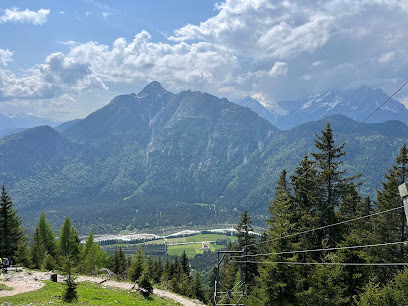
Unmissable attractions to see
Golden Roof
Explore the Golden Roof in Innsbruck, a stunning historical landmark adorned with gilded tiles, offering a glimpse into the city's rich cultural heritage.
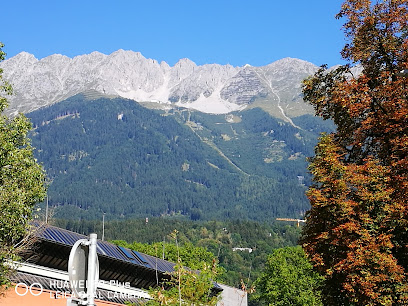
Alpenzoo Innsbruck - Tirol
Discover the stunning wildlife of the Alps at Alpenzoo Innsbruck, where nature and education unite in a breathtaking setting.
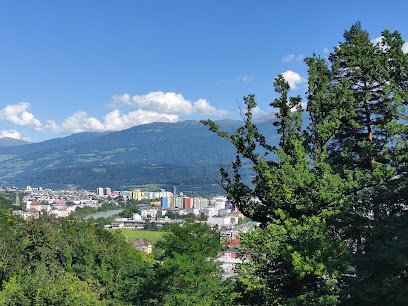
Ambras Castle Innsbruck
Explore the enchanting Ambras Castle in Innsbruck, where history, art, and stunning architecture create a captivating experience for every traveler.
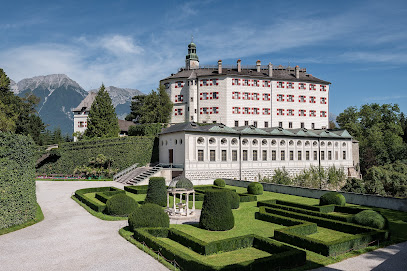
Hafelekarspitze
Experience breathtaking views and unbeatable hiking at Hafelekarspitze, a top-rated alpine observation deck near Innsbruck, Austria.
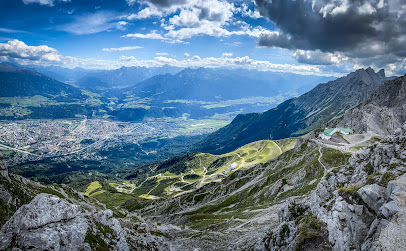
Leutasch Gorge
Explore the stunning Leutasch Gorge, a breathtaking natural attraction in Austria's Tyrolean Alps, perfect for nature lovers and adventure seekers.
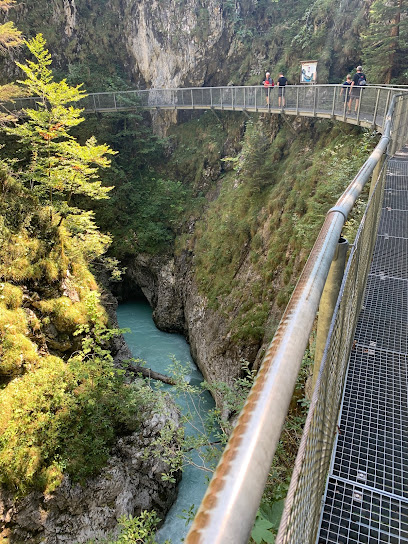
Karwendel-Bergbahn
Discover breathtaking views and serene hiking trails at the Karwendel-Bergbahn, a must-visit mountain cable car in the stunning Tyrolean Alps.
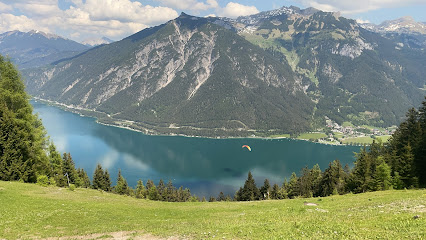
Leutasch-Klamm Wasserfallsteig
Discover the enchantment of Leutasch-Klamm Wasserfallsteig, a breathtaking hiking trail featuring stunning waterfalls and captivating natural beauty.
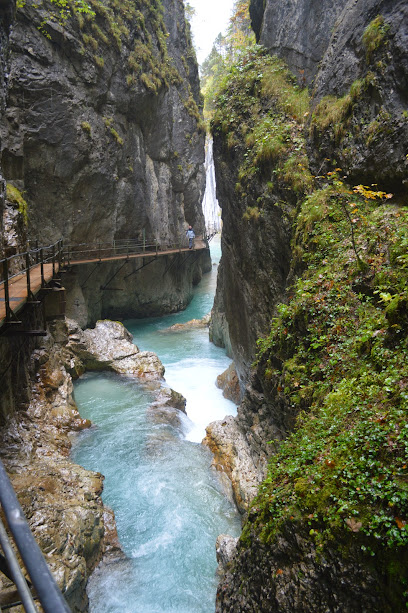
Naturpark Karwendel Verwaltung
Explore the breathtaking Naturpark Karwendel, a stunning national reserve in the Alps, perfect for hiking, wildlife watching, and nature appreciation.
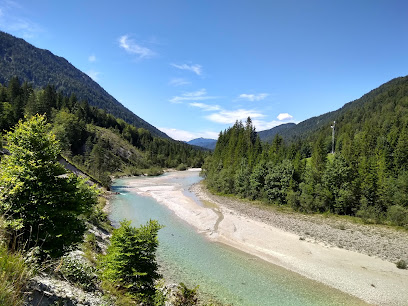
Burg Hasegg / Münze Hall in Tirol
Explore the fascinating history of coin minting at Burg Hasegg in Hall in Tirol, a captivating museum and historical landmark in Austria.
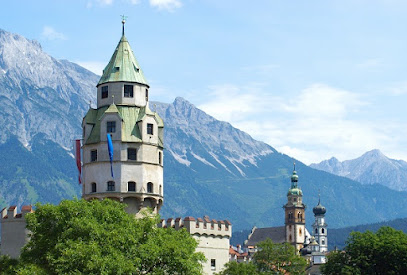
Münter - House
Explore Münter-Haus, a vibrant museum showcasing the life and works of Gabriele Münter in the enchanting town of Murnau am Staffelsee.
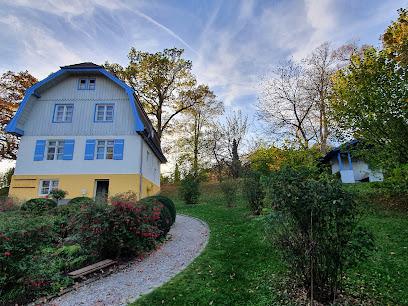
Großer Ahornboden
Explore the breathtaking Großer Ahornboden, a scenic paradise of ancient maples and stunning mountain views in the heart of Austria's Karwendel Nature Park.
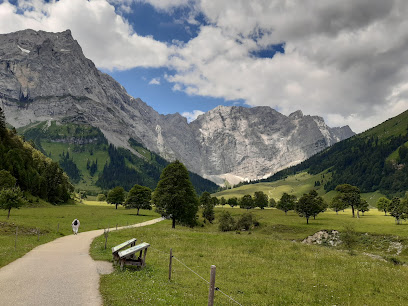
Isar Ursprung, Naturpark Karwendel
Experience the serene beauty of Isar Ursprung in Karwendel Nature Park, a perfect escape for nature lovers and adventure seekers alike.
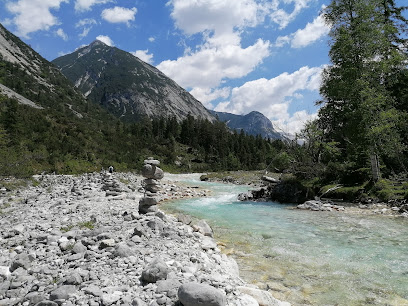
Brunschkopf
Discover the natural beauty of Brunschkopf in Seefeld, a breathtaking mountain destination for hiking and outdoor adventures in the Tyrolean Alps.
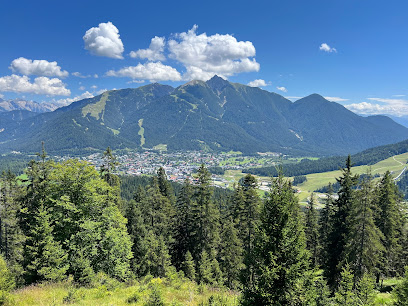
Karwendel Alpine Park Absam
Explore the stunning Karwendel Alpine Park in Absam, where breathtaking landscapes and diverse wildlife await every outdoor enthusiast.
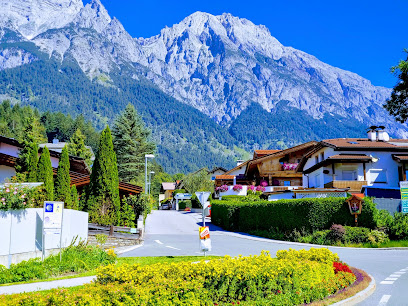
Karwendel
Explore the breathtaking landscapes and exhilarating adventures of the Karwendel Mountain Range in the Austrian Alps, a must-visit for nature lovers.
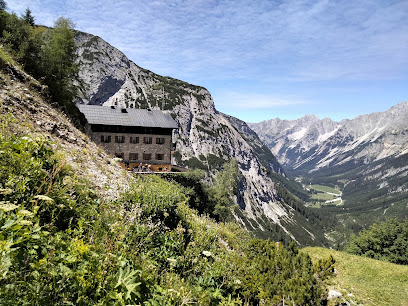
Essential places to dine
Restaurant Seegrube
Experience stunning Alpine views and authentic Austrian cuisine at Restaurant Seegrube in Innsbruck.
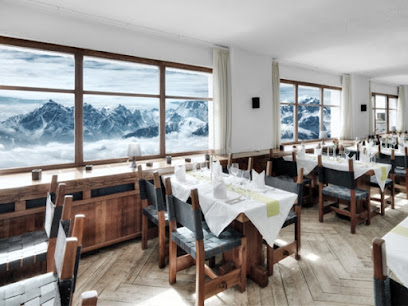
Alpengasthof Gröbl-Alm - Leuthner oHG
Experience authentic Bavarian cuisine and warm hospitality at Alpengasthof Gröbl-Alm in Mittenwald, surrounded by stunning alpine landscapes.
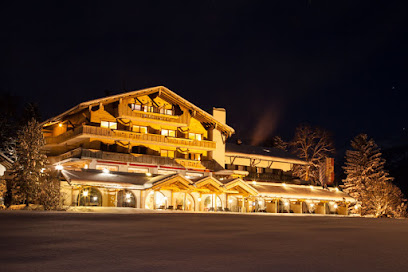
Gramai Alm Alpengenuss & Natur Spa
Discover ultimate relaxation at Gramai Alm Alpengenuss & Natur Spa—where culinary excellence meets serene wellness amidst stunning alpine landscapes.

Alpenrose Traditionsgasthof
Discover Bavarian hospitality at Alpenrose Traditionsgasthof in Mittenwald - a perfect blend of comfort, cuisine, and alpine beauty.
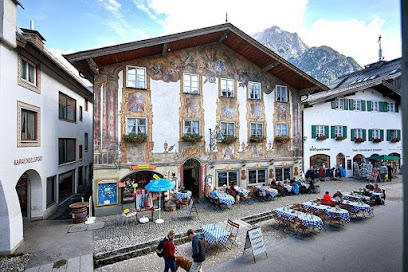
DIE ENG - Das Naturhotel am Großen Ahornboden
Discover tranquility and exquisite dining at DIE ENG - your gateway to nature's beauty in Hinterriß.
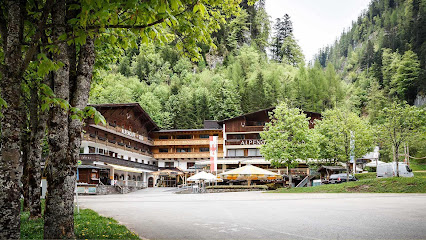
Nannis
Experience the essence of Austrian cuisine at Nanni's Café in Seefeld – where tradition meets taste in every bite.
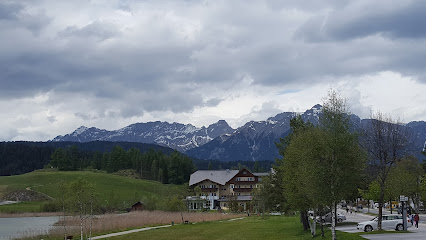
Rasthütte Eng-Alm
Discover Rasthütte Eng-Alm: A cozy alpine restaurant serving traditional Tyrolean cuisine amidst breathtaking mountain views.
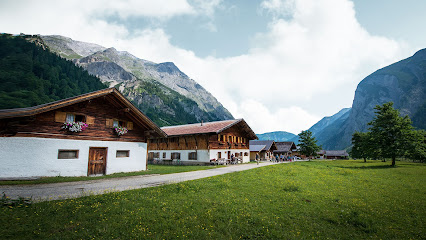
Augustiner Keller - Goldener Engl
Experience authentic Austrian cuisine at Augustiner Keller - Goldener Engl in Hall in Tirol, where tradition meets taste amid stunning alpine scenery.
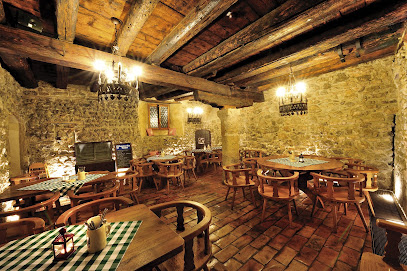
Seehotel St. Hubertus
Experience culinary delights at Seehotel St. Hubertus while enjoying breathtaking views of Achensee's stunning landscapes.
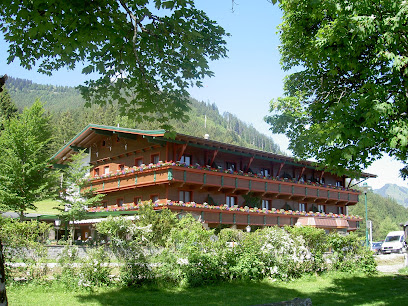
Langlaufstüberl
Experience authentic Tyrolean flavors amidst stunning alpine views at Langlaufstüberl in Pertisau.
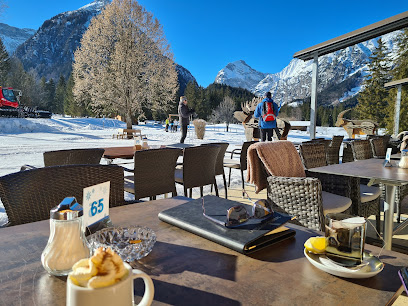
Alpengasthof Gern Alm
Experience authentic Tyrolean hospitality at Alpengasthof Gern Alm—your perfect mountain getaway with stunning views and delicious local cuisine.
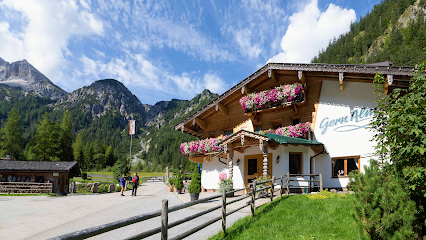
Hinterhornalm
Experience authentic Tyrolean cuisine at Hinterhornalm while enjoying breathtaking alpine views in Gnadenwald.
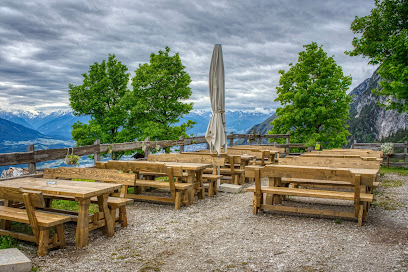
Jausenstation Feilalm
Discover authentic Austrian cuisine with stunning views at Jausenstation Feilalm - a must-visit restaurant in Achensee.
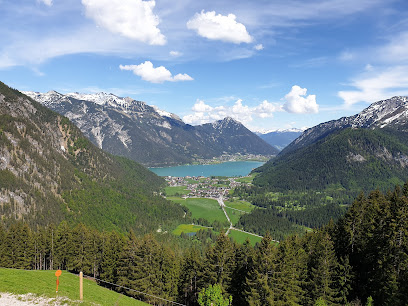
Hotel Speckbacherhof in Innsbruck Umgebung - Restaurant, Seminarräume & Hochzeitslocation
Experience authentic Tyrolean hospitality at Hotel Speckbacherhof – where exquisite dining meets stunning alpine views.

Berggasthaus Ederkanzel
Discover culinary excellence at Berggasthaus Ederkanzel while enjoying breathtaking alpine views in Mittenwald's heart.
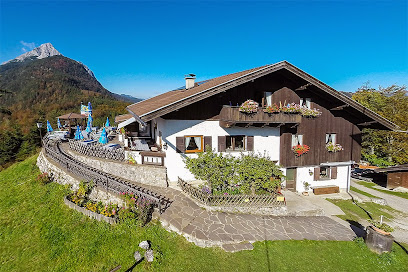
Markets, malls and hidden boutiques
DEZ Innsbruck
Discover DEZ Innsbruck, where shopping meets dining in a stunning alpine setting. Experience fashion, flavor, and fun in the heart of Tyrol.

Sillpark
Discover Sillpark in Innsbruck: a vibrant shopping center with diverse stores, delicious dining, and engaging events for every traveler.
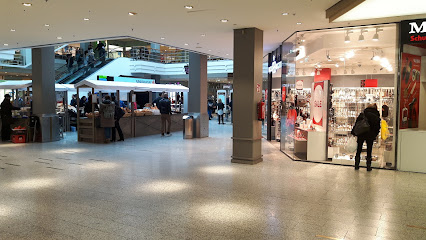
Kaufhaus Tyrol
Explore Kaufhaus Tyrol for an unforgettable shopping experience in the heart of Innsbruck, featuring a mix of local and international brands.
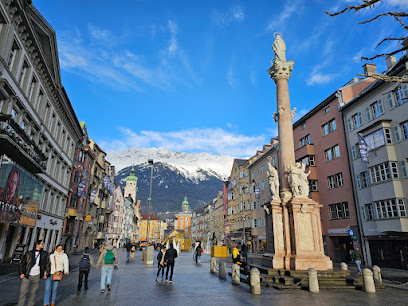
Flying Tiger Copenhagen
Explore Flying Tiger Copenhagen in Innsbruck for quirky gifts, home essentials, and creative supplies at affordable prices.
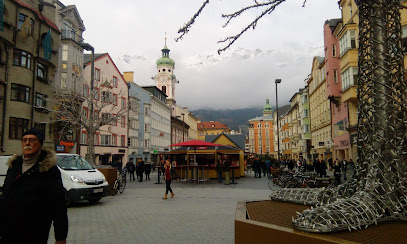
LIBRO
Explore LIBRO, a delightful gift shop in Hall in Tirol, offering a unique selection of toys, stationery, and gifts perfect for every occasion.
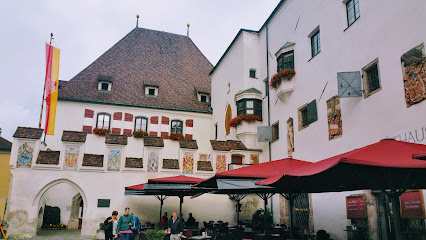
Tirol Geniessen
Explore Tirol Geniessen for authentic local liquors and unique souvenirs that embody the spirit of Innsbruck’s rich culture and craftsmanship.
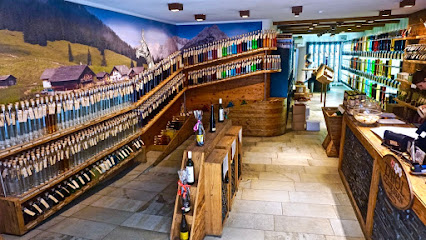
Boutique Andrea b. - Mode für mehr Frau
Discover unique plus-size fashion and accessories at Boutique Andrea in Hall in Tirol, where personal service meets exceptional style.
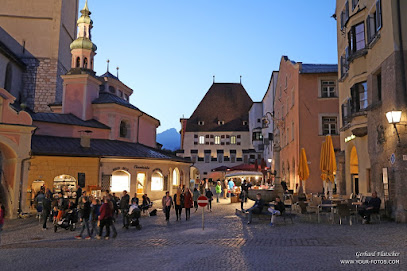
Depot
Explore Depot in Innsbruck for unique gifts, stylish home decor, and a taste of local craftsmanship on Maria-Theresien-Straße.
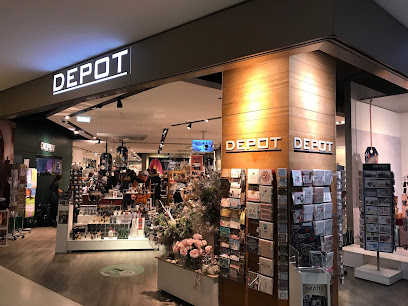
Naturparkhaus Hinterriß, Nature Park Karwendel
Explore the breathtaking Karwendel Nature Park at Naturparkhaus Hinterriß, your gateway to nature, culture, and local treasures.
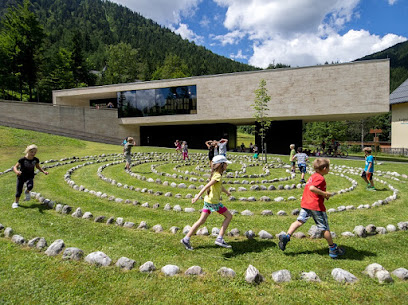
Zirbenfamilie
Explore Zirbenfamilie in Wattens for unique handcrafted gifts made from Swiss pine, perfect for souvenirs or personal treasures.

G-Star RAW Store
Explore the latest in sustainable fashion at the G-Star RAW Store, your go-to destination for stylish denim and contemporary clothing in Innsbruck.
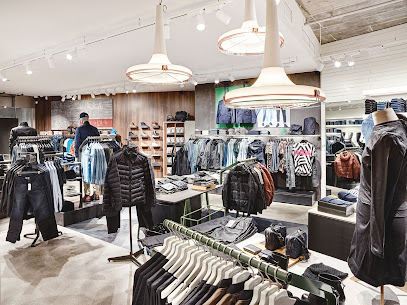
Armatae.shop GmbH
Explore Armatae.shop in Hall in Tirol for an authentic shopping experience filled with local treasures and quality craftsmanship.
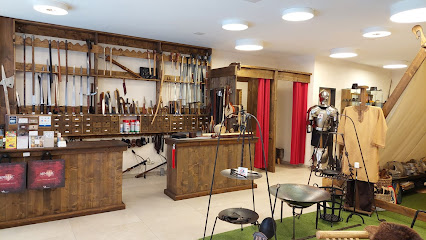
Resort Innsbruck, Concept Store
Experience a unique shopping adventure at Resort Innsbruck Concept Store, where local treasures meet exceptional quality in a cozy environment.
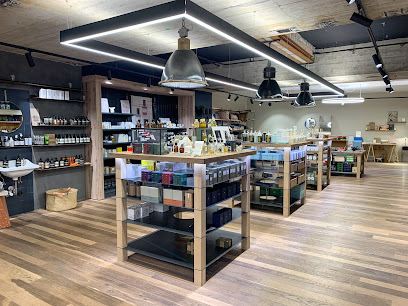
feinheiten
Uncover exquisite fashion accessories, bags, and women's clothing at Feinheiten, a gem in the heart of Innsbruck.
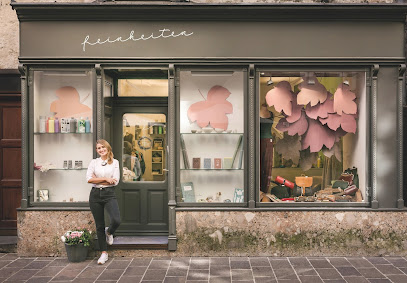
Haus der Geschenke
Discover unique souvenirs and local crafts at Haus der Geschenke in Hall in Tirol, where every gift tells a story.
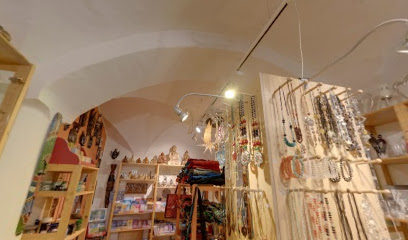
Essential bars & hidden hideouts
Alpengasthaus Falzturn
Experience authentic Tyrolean hospitality at Alpengasthaus Falzturn, a charming pub in the heart of Pertisau, surrounded by breathtaking alpine beauty.
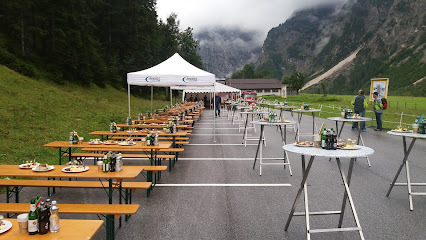
Seebar Achensee
Experience the serene ambiance of Seebar Achensee, where stunning lake views and delicious offerings create the perfect getaway.
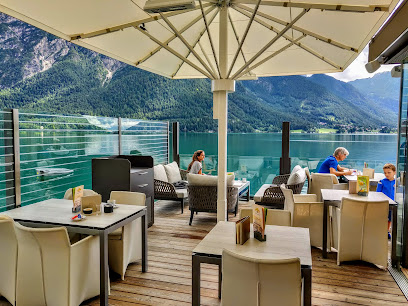
M+M Bar - die Cocktailbar in Innsbruck
Discover M+M Bar in Innsbruck - a cocktail haven offering a vibrant atmosphere and unique drink creations in the heart of the city.
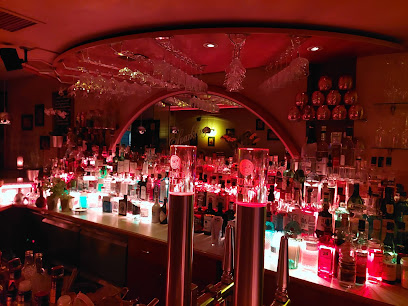
Bar Centrale
Experience the essence of Italian dining and vibrant bar culture at Bar Centrale in Hall in Tirol.
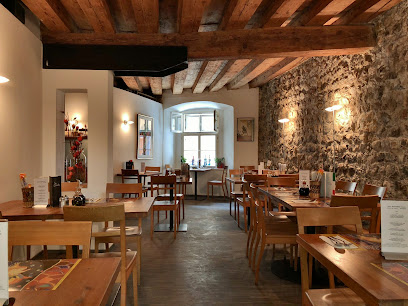
Gaststätte Die Kneipe
Discover the authentic taste of Bavaria at Die Kneipe, where local flavors and warm hospitality create an unforgettable dining experience.
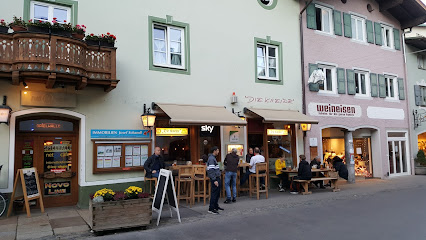
Restaurant josefs bar & bistro
Experience the best of Bavarian cuisine at Restaurant josefs bar & bistro in Mittenwald, where local flavors meet warm hospitality.
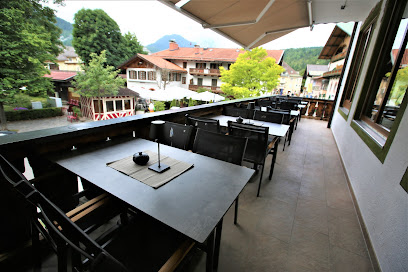
FIFTY | FIFTY 50/50
Discover Vomp's vibrant nightlife at FIFTY | FIFTY 50/50, where exceptional cocktails meet warm Austrian hospitality in a cozy atmosphere.
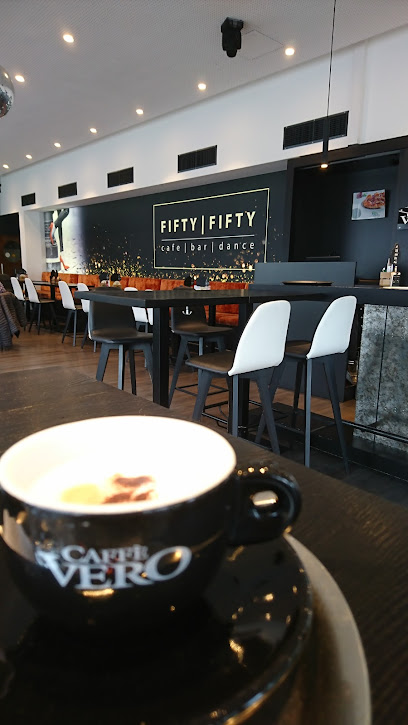
Marcello's Vinothek
Experience the exquisite selection of wines and charming atmosphere at Marcello's Vinothek in Hall in Tirol, a must-visit for wine enthusiasts.
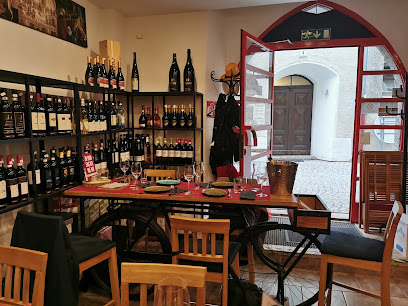
Cloud 9 - Iglu Bar Innsbruck
Experience the breathtaking views and unique ambiance of Cloud 9 - Iglu Bar in Innsbruck, where the mountains meet cozy relaxation.
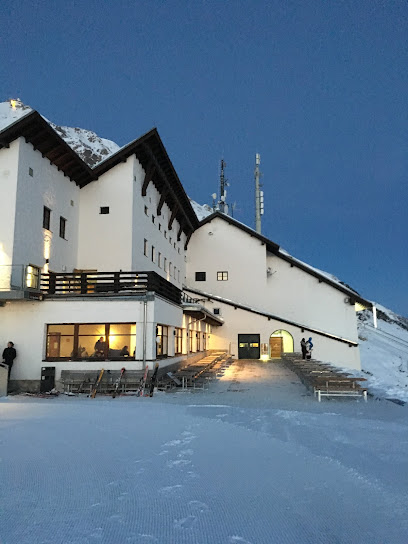
Goldener Löwe & Diana Bar
Experience the heart of Hall in Tirol at Goldener Löwe & Diana Bar, where exceptional drinks and a cozy atmosphere await you.
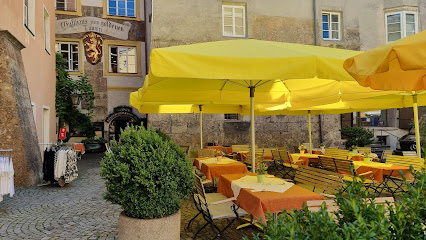
Abyss Bar
Experience the lively atmosphere of Abyss Bar in Innsbruck, a hotspot for vibrant nightlife and delightful drinks.
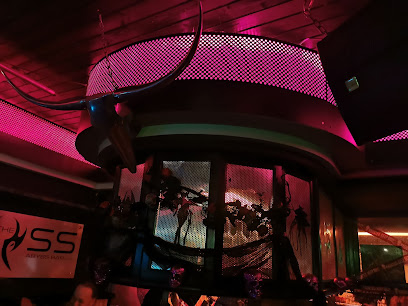
Art Gerecht
Discover Art Gerecht in Schwaz: A unique bar blending art and local drinks for an unforgettable experience.
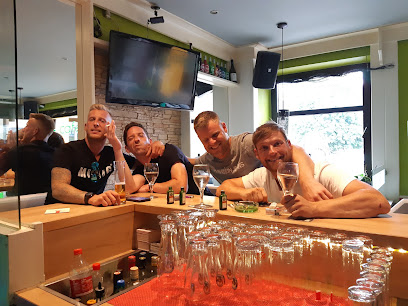
OimRausch
Discover the charm of OimRausch in Jenbach, a cozy bar offering a wide selection of drinks in a welcoming atmosphere.
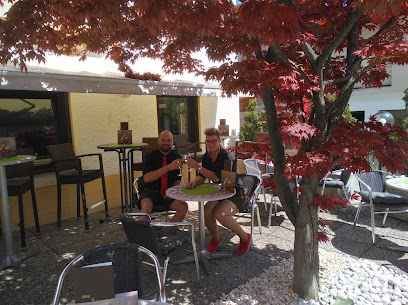
Fuchs und Hase Bar
Discover the vibrant nightlife of Innsbruck at Fuchs und Hase Bar, where great drinks and a lively atmosphere await you.
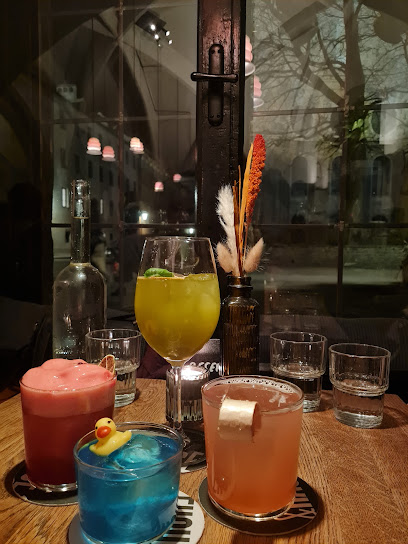
Local Phrases about Karwendel Mountains
-
- HelloServus
[Zer-voos] - GoodbyeAuf Wiedersehen
[Owf Vee-der-zay-en] - YesJa
[Yah] - NoNein
[Nine] - Please/You're welcomeBitte
[Bit-tuh] - Thank youDanke
[Dahn-kuh] - Excuse me/SorryEntschuldigung
[Ent-shool-dee-gung] - How are you?Wie geht es dir?
[Vee gayt es deer?] - Fine. And you?Gut. Und dir?
[Goot. Oond deer?] - Do you speak English?Sprichst du Englisch?
[Shprichst doo Eng-lish?] - I don't understandIch verstehe nicht
[Eekh fair-shtay-uh nisht]
- HelloServus
-
- I'd like to see the menu, pleaseIch hätte gerne die Speisekarte, bitte
[Eekh hah-tuh gair-nuh dee Shpy-suh-kahr-teh, bit-tuh] - I don't eat meatIch esse kein Fleisch
[Eekh ess-uh kine Flysh] - Cheers!Prost!
[Prohst] - I would like to pay, pleaseIch möchte bitte bezahlen
[Eekh mehrk-tuh bit-tuh baz-ah-len]
- I'd like to see the menu, pleaseIch hätte gerne die Speisekarte, bitte
-
- Help!Hilfe!
[Hil-fuh] - Go away!Geh weg!
[Geh vayg] - Call the Police!Rufen Sie die Polizei!
[Roo-fen Zee dee Poh-lee-tsay] - Call a doctor!Rufen Sie einen Arzt!
[Roo-fen Zee eye-nen Artz] - I'm lostIch habe mich verirrt
[Eekh hah-buh meesh fair-eert] - I'm illIch bin krank
[Eekh been krank]
- Help!Hilfe!
-
- I'd like to buy...Ich möchte kaufen...
[Eekh mehrk-tuh cow-fen...] - I'm just lookingIch schaue nur
[Eekh shau-uh noor] - How much is it?Wie viel kostet es?
[Vee feel koh-stet es?] - That's too expensiveDas ist zu teuer
[Dahs ist tsoo toy-er] - Can you lower the price?Können Sie den Preis senken?
[Kern-en Zee den prise zank-en?]
- I'd like to buy...Ich möchte kaufen...
-
- What time is it?Wie spät ist es?
[Vee shpayt ist es?] - It's one o'clockEs ist ein Uhr
[Es ist ine oor] - Half past (10)Halb elf
[Halb elf] - MorningMorgen
[Morgen] - AfternoonNachmittag
[Nah-mit-tahg] - EveningAbend
[Ah-bend] - YesterdayGestern
[Ges-tairn] - TodayHeute
[Hoy-tuh] - TomorrowMorgen
[Morgen] - 1Eins
[Ines] - 2Zwei
[Tzvey] - 3Drei
[Dry] - 4Vier
[Feer] - 5Fünf
[Fuhnf] - 6Sechs
[Zex] - 7Sieben
[Zee-ben] - 8Acht
[Acht] - 9Neun
[Noin] - 10Zehn
[Tzain]
- What time is it?Wie spät ist es?
-
- Where's a/the...?Wo ist ein/der...?
[Voh ist ine/der] - What's the address?Was ist die Adresse?
[Vahs ist dee Ah-dreh-suh] - Can you show me (on the map)?Können Sie mir zeigen (auf der Karte)?
[Kern-en Zee meer tsay-gen (owf dair Kahr-teh)] - When's the next (bus)?Wann kommt der nächste (Bus)?
[Vahn kommt dair nek-stuh (Boos)] - A ticket (to ....)Eine Fahrkarte (nach ....)
[Ine-uh Fahr-kahr-teh (nahkh ....)]
- Where's a/the...?Wo ist ein/der...?
History of Karwendel Mountains
-
The Karwendel Mountains have been inhabited since the Stone Age, as evidenced by archaeological finds such as tools and artifacts. The region provided a natural shelter and resources for early settlers, including the Illyrians and Celts who lived in the area before the Roman conquest.
-
During the Roman Empire, the Karwendel Mountains were part of the province of Raetia. The Romans constructed the Via Claudia Augusta, a vital road that connected Italy to the Danube River, passing through the Karwendel region. This route facilitated trade and cultural exchange, leaving behind remnants of Roman infrastructure and settlements.
-
In the medieval period, the Karwendel Mountains saw the establishment of numerous monasteries and abbeys. These religious institutions became centers of learning, agriculture, and culture. The Benedictine Abbey of St. Georgenberg-Fiecht, founded in the 10th century, is one of the most notable examples, playing a significant role in the region's spiritual and cultural life.
-
The Karwendel Mountains became part of the Habsburg Empire in the late Middle Ages. The Habsburgs promoted the development of the region through forestry, mining, and agriculture. Hunting lodges and castles were built, serving as retreats for the nobility and symbols of the imperial presence in the area.
-
During World War I, the strategic location of the Karwendel Mountains made them a site of military significance. The rugged terrain served as a natural defense barrier, and the area saw the construction of fortifications and military infrastructure. Remnants of these wartime structures can still be found, offering a glimpse into the region's role in the conflict.
-
After World War II, the Karwendel Mountains experienced a period of reconstruction and development. The natural beauty and recreational opportunities of the region attracted tourists, leading to the growth of tourism as a major economic activity. The establishment of the Karwendel Nature Park in 1928 helped preserve the region's natural environments and promote sustainable tourism.
-
The Karwendel Mountains are not only rich in natural beauty but also in cultural heritage. Traditional Tyrolean culture is evident in the region's architecture, festivals, and customs. Annual events such as the Almabtrieb, where cattle are herded down from the high pastures in autumn, showcase the enduring connection between the people and the land.
Karwendel Mountains Essentials
-
The Karwendel Mountains are located in the Tyrol region of Austria. The closest international airports are Innsbruck Airport (INN) and Munich Airport (MUC) in Germany. From Innsbruck, you can take a train to the towns of Seefeld or Scharnitz, which are gateways to the Karwendel region. From Munich, you can take a train to Mittenwald and then transfer to a local train or bus to reach the Karwendel area. Car rentals are also available at both airports for those who prefer to drive.
-
Within the Karwendel Mountains, the primary modes of transportation are hiking and biking. There are also local buses that connect the towns and villages in the region. For those looking to explore more remote areas, renting a car can be convenient. Many trails and alpine huts are only accessible by foot or bike, so be prepared for some physical activity.
-
The official currency in Austria is the Euro (EUR). Credit cards are widely accepted in hotels, restaurants, and shops. However, it is advisable to carry some cash, especially for smaller establishments and mountain huts where card payments may not be possible. ATMs are available in larger towns like Innsbruck, Seefeld, and Mittenwald.
-
The Karwendel Mountains are generally safe for tourists. However, standard precautions should be taken. Avoid hiking alone, especially on less-traveled trails. Always inform someone of your plans and expected return time. There are no specific high-crime areas targeting tourists, but it's always best to stay vigilant and keep an eye on your belongings, especially in crowded places.
-
In case of emergency, dial 112 for immediate assistance. There are local police stations and medical facilities in towns like Innsbruck and Seefeld. It is highly recommended to have travel insurance that covers medical emergencies. For mountain rescue, the Austrian Alpine Club offers services, and it is a good idea to carry a mobile phone with you while hiking.
-
Fashion: Do wear appropriate hiking gear when exploring the mountains. Dressing in layers is advisable due to changing weather conditions. Religion: Do respect local customs and traditions. While there are no specific religious dress codes, modest clothing is appreciated. Public Transport: Do be respectful and give up your seat to elderly passengers. Don't eat or drink on public transport. Greetings: Do greet people with a friendly 'Grüß Gott' (a traditional Tyrolean greeting). A handshake is also common. Eating & Drinking: Do try local delicacies like Tyrolean Gröstl and Kaiserschmarrn. Don't refuse hospitality, as it is considered impolite.
-
To experience the Karwendel Mountains like a local, visit traditional alpine huts (Almhütten) where you can enjoy homemade Austrian dishes and interact with the locals. Participate in local festivals such as the Almabtrieb (cattle drive) in autumn. Engage with the locals, as they are often friendly and willing to share stories about the region's history and culture. Don't miss the opportunity to attend a concert or event at the Innsbruck Festival of Early Music.
Trending Landmarks in Karwendel Mountains
Nearby Cities to Karwendel Mountains
-
Things To Do in Kitzbühel
-
Things To Do in Munich
-
Things To Do in St. Anton am Arlberg
-
Things To Do in Zell am See
-
Things To Do in Salzburg
-
Things To Do in Dornbirn
-
Things To Do in Bregenz
-
Things To Do in Bad Gastein
-
Things To Do in Davos
-
Things To Do in Schellenberg
-
Things To Do in Ruggell
-
Things To Do in Mauren
-
Things To Do in Eschen
-
Things To Do in Triesenberg
-
Things To Do in Gamprin












